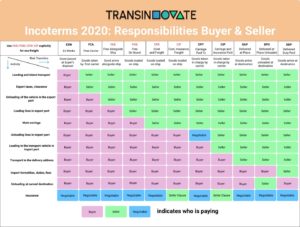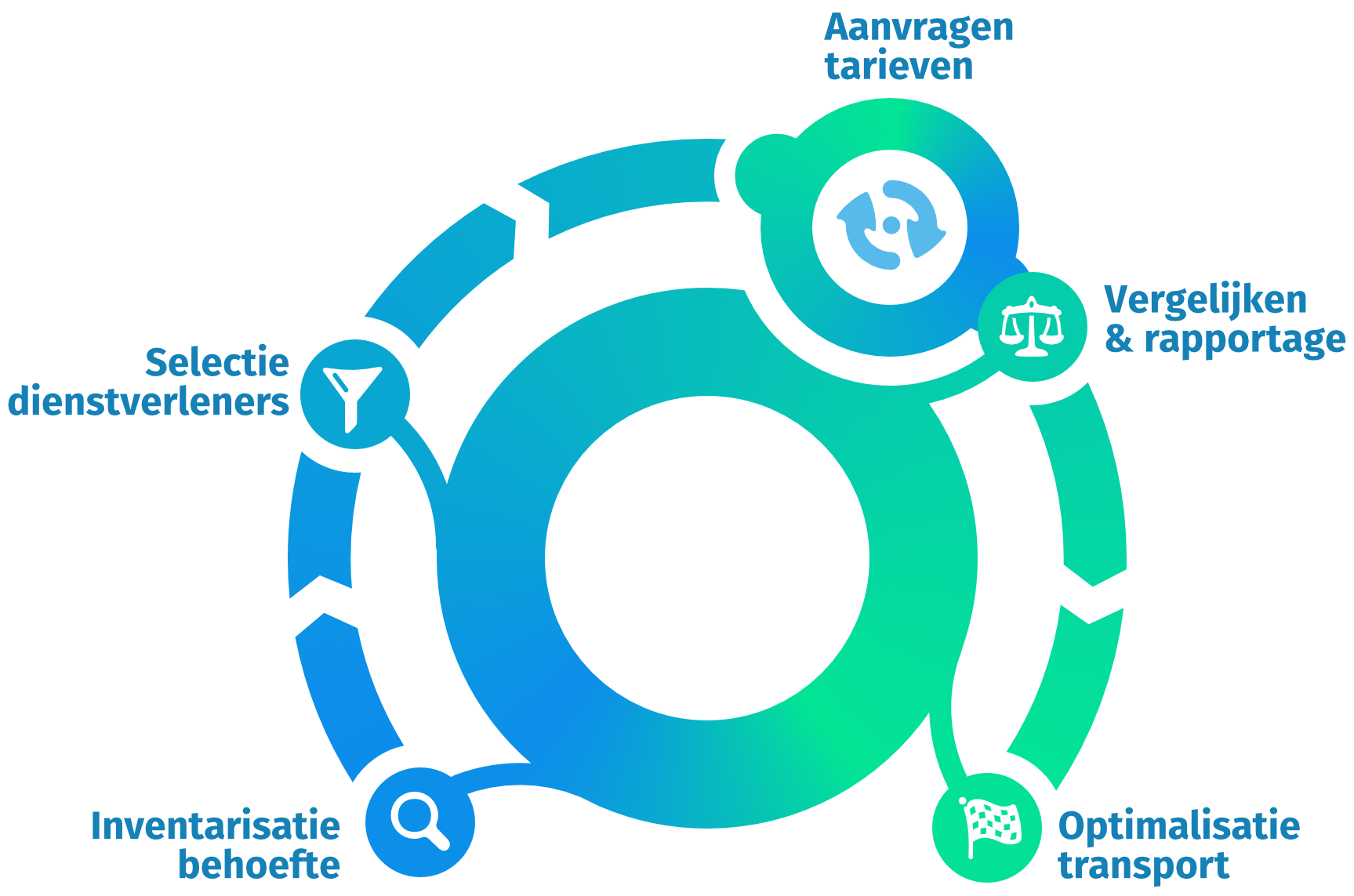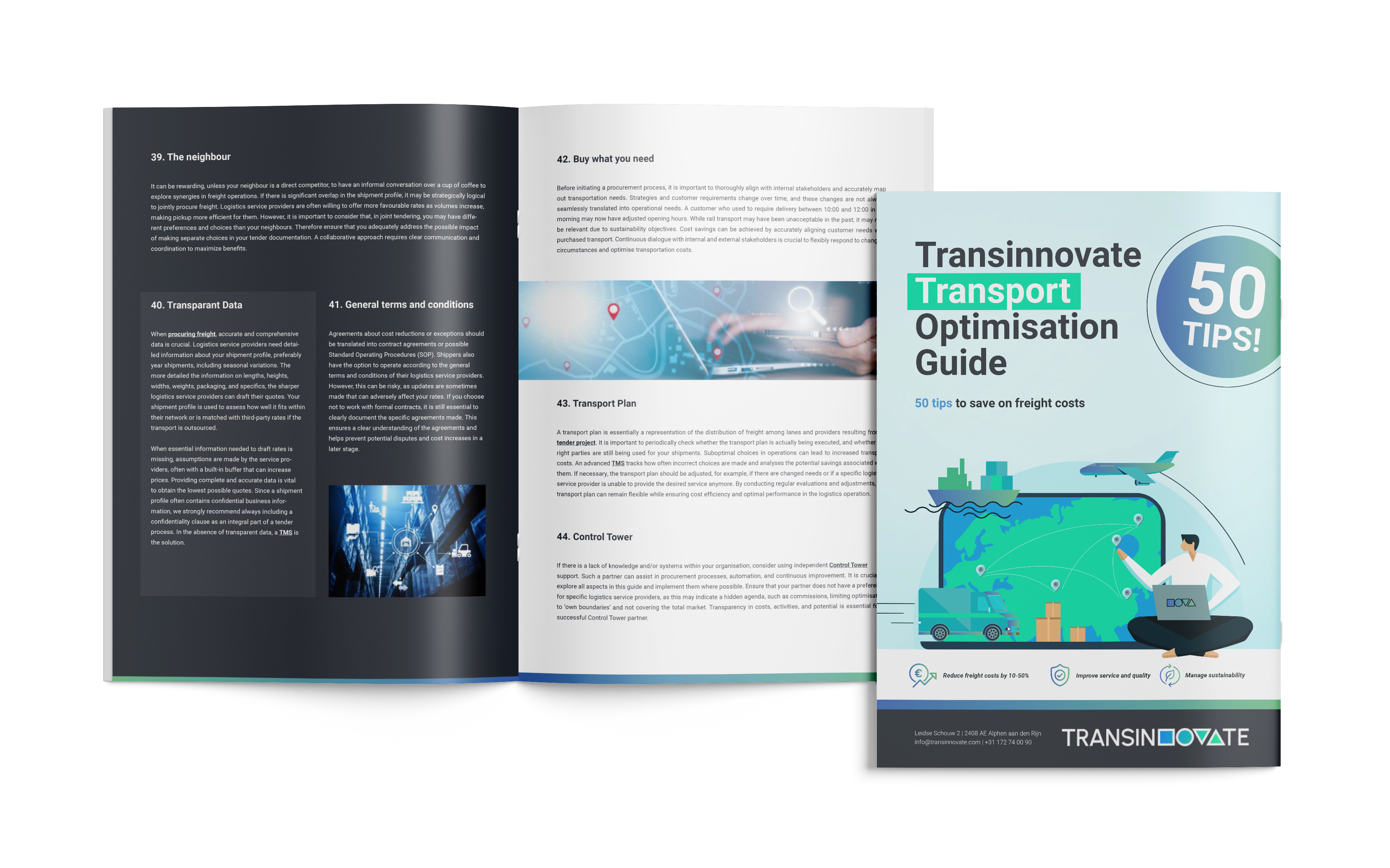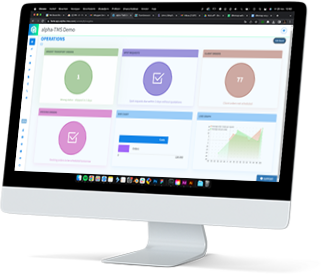ICC Incoterms®, waaronder de CFR Incoterm®, representeren gestandaardiseerde internationale afspraken betreffende leveringsvoorwaarden die tussen koper en verkoper zijn vastgelegd. Deze voorschriften bepalen wereldwijd de regelingen omtrent transport, kosten en eventuele schade tijdens het transport. De International Chamber of Commerce (ICC) actualiseert de Incoterms® eens in de tien jaar. De meest recente versie, ICC Incoterms® 2020, werd van kracht op 1 januari 2020. Voor een volledig overzicht van alle Incoterms, raadpleeg de volgende link hier.
 Wat is CFR Incoterm®?
Wat is CFR Incoterm®?
De Cost and Freight (CFR) Incoterm is een internationale handelsovereenkomst die wordt gebruikt voor transport over water. In een CFR-regeling is de verkoper verantwoordelijk voor het leveren van de goederen aan een genoemde haven, waarbij de kosten van transport naar de haven en de vrachtkosten worden gedekt. De overdracht van risico vindt plaats wanneer de goederen de scheepsreling passeren.
Voordelen CFR Incoterm®
- Duidelijke kostenverdeling: CFR biedt een duidelijke verdeling van kosten tussen de verkoper en koper. De verkoper is verantwoordelijk voor de kosten van transport naar de genoemde haven en de vrachtkosten, wat het voor beide partijen hun financiële verplichtingen duidelijk maakt.
- Vereenvoudigde logistiek voor kopers: Zodra de goederen aan boord van het schip zijn geladen, neemt de koper de controle over het transport en de logistiek vanaf de haven over. Dit stelt kopers in staat zelf vervoerders te kiezen volgens en mogelijk betere tarieven te onderhandelen.
- Wereldwijde toepasbaarheid: CFR is geschikt voor zowel binnenlandse als internationale transacties, waardoor het een veelzijdige Incoterm is voor verschillende handelsscenario’s.
Nadelen CFR Incoterm®
- Beperkte verantwoordelijkheid van de verkoper: Verkopers hebben beperkte verantwoordelijkheid nadat de goederen aan boord van het schip zijn geladen. Als er problemen zoals schade of vertragingen optreden tijdens het zeevervoer, draagt de koper de verantwoordelijkheid en kosten voor het oplossen of de gevolgen hiervan.
- Risico-overdracht bij de scheepsreling: Het punt van risico-overdracht is wanneer de goederen de scheepsreling passeren. Als schade of verlies zich voor dit punt voordoet, is de verkoper verantwoordelijk. Het risico wordt echter relatief vroeg in het transportproces overgedragen aan de koper.
- Kans op geschillen: Geschillen kunnen ontstaan bij misverstanden rond het laadproces of als er problemen optreden tijdens het zeevervoer. Duidelijke communicatie en goede afspraken over laadprocedures en verantwoordelijkheden zijn cruciaal om deze risico’s te beperken.
Samengevat Cost and Freight
Samengevat biedt CFR een heldere verdeling van kosten en verantwoordelijkheden bij de haven, waardoor de logistiek voor beide partijen wordt vereenvoudigd. Verkopers profiteren van verminderde betrokkenheid na het laden, terwijl kopers controle krijgen over het transport en mogelijke kostenbesparingen. Zorgvuldige communicatie en goede contracten zijn belangrijk om geschillen te voorkomen, met name met betrekking tot laadprocedures en verantwoordelijkheden.
Heeft u vaak zeevracht, zowel als verkoper of als koper? Als u wilt bespreken welke Incoterms® en transportoplossing het beste bij uw situatie passen, neem dan contact met ons op.





